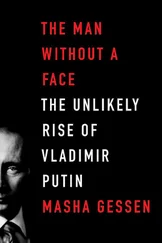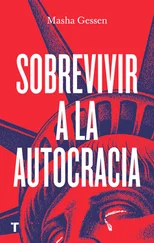The books or Andrei or both—and something else too—gave Nadya the idea, rarely expressed in Russia, especially in Norilsk, that things could be different—and she demanded that they be so. When she was fifteen, she submitted an article to Zapolyarnaya Pravda (“The Truth Beyond the Arctic Circle”), the local daily, and the paper published it under the headline WHAT IS THIS WORLD COMING TO? It was a poorly organized, cliché-ridden rant that condemned Nadya’s contemporaries for being shallow and unmotivated, blamed this on all sorts of factors including the popularity of a transvestite singer on television, attributed Marx’s maxim that “social being determines consciousness” to the wisdom of Nadya’s mother, but concluded, incongruously, with a call to dare effect change because, after all, “It’s a wonderful life.” When I found the article, I was reassured to learn that Nadya had not come out of the womb quoting Theory, as I had at times suspected, but had been a haphazardly informed and typically judgmental adolescent—just an unusually active one.
The triumphant publication of the article—no Tolokonnikov had ever been in print before—gave either Nadya or Andrei or both the idea that she could be a journalist. Moscow State University’s journalism department preferred its applicants with a few publications to their name. Andrei and Nadya collaborated on several pieces they submitted to a Krasnoyarsk paper as Nadya’s. There might, however, have been more Andrei than Nadya in them, for the editor rejected them, saying that journalism dealt in fact, not fantasy—an assertion that still appeared to offend Andrei’s sensibilities when he recounted the story to me seven years later. Nadya would not be applying to the journalism department.
———
IN THE MID-1990S, the mining giant Norilsk Nickel, by far the city’s largest employer, was privatized by a pair of emerging oligarchs. In a few years, the junior partner, Mikhail Prokhorov, decided to become the hands-on manager of the plant and the man who would modernize not only production but the very lives of workers. He inserted himself into Norilsk housing construction, the planning of Norilsk leisure, and the city’s cultural life.
As it happened, Prokhorov was unusually close to his older sister, Irina, whose publishing enterprise he had started funding with some of the first money he made years earlier. Irina Prokhorova started and ran the country’s best and biggest intellectual publishing house, putting out books, a scholarly journal, and a more-popular intellectual magazine. In 2004, when Mikhail (who generally left the reading of books and other lofty pursuits to his sister) launched a culture foundation, he asked Irina to run it—and to bring the intellectual wealth of her publishing house to Norilsk. For years, when light started dawning in Norilsk, Irina would put together a large group of Moscow writers, artists, and photographers and airlift them to Norilsk for weeks of performances, lectures, and seminars. This was how Nadya saw Prigov. Dmitry Alexandrovich Prigov was a visual artist, a performance artist, and a Conceptualist poet, and he sounded, looked, and moved like no one Nadya had ever seen before. He once explained, “I don’t produce text, I produce artistic behavior.” He wrote poems like:
I’ve spent my whole life doing the dishes
And writing highfalutin poetry
From this, my wisdom and judiciousness
Therefore my character, so mild and steady
I understand the water flowing from my faucet
Outside my window, it’s the people and the state
If I don’t like something, I just forget about it
I keep my mind on things that I can tolerate. [1] Translation by Bela Shayevich.
He took turgid Soviet language, which Nadya had been unsuccessfully trying to use, and made it his own: he bent it, molded it, made it funny, and even more incredibly, made it poignant. This made Prigov and the Moscow Conceptualist school different from any writers Nadya had read or seen before: they did not turn up their noses or turn their faces away from official Soviet culture but, acknowledging its thoroughly false nature, made hay—that is, art—out of it. They reappropriated Soviet expressions like collective action —the Moscow Conceptualists staged a series of performances under that title in the 1980s—and other staples of Soviet officialdom, as Prigov had done with the bureaucratic habit of addressing people by their name and patronymic; he made it his artistic name.
Nadya added the Moscow Conceptualists to her extracurricular list of “reading for the soul.” And she decided to apply to the philosophy department of Moscow State University. “The philosophy department appeared to me as paradise,” she wrote to me from prison, “a place where everyone (or so I thought) was a researcher and an experimenter and everyone had his own little pocket Chernyshevsky, his own little critical thinker.” (Nikolay Chernyshevsky was a Russian materialist philosopher.) Nadya’s mother said the philosophy department would be hell. She started smoking in the apartment and having constant extremely loud telephone conversations to give Nadya a taste of life in a dormitory. In fact, after sixteen-year-old Nadya miraculously gained admission to the philosophy department despite having no connections in high places, she was assigned to a dorm room with two pious Russian Orthodox fourth-year students who made dorm life feel infinitely better than home. Otherwise, though, the philosophy department was hell.
It took a few letters back and forth to get Nadya to describe precisely what was wrong with the philosophy department—other than everything. It seemed a topic she found almost too distasteful to discuss. “I was flummoxed,” she finally wrote, “by the students’ immaturity, the irresponsibility of their worldview, their mediocrity, their constant readiness to act true to type, to stick to the norm, their lack of passion—of something that would be authentic, eccentric, outside the norm.” Nadya herself stuck to the philosophy department student norm for one semester. “I hate that time and I hate who I was during that time. And I cannot understand how people can spend five years out of their finite lives in such a talentless, slavish, bureaucratic manner.”
At the start of her second semester, Nadya met Petya. He was older—twenty—and in his fourth year in the philosophy department, and he was worldly in a real and almost unfathomable way. When he was a teenager, his parents had accepted an extraordinarily generous offer from friends in Toronto, who had suggested sending their troubled adolescent to stay with them and go to high school there. After two years, Petya spoke near-native English; then he spent a year in Japan, where his father was working at the time. He had actually seen the poststructuralist feminist philosopher Judith Butler give a talk on the University of Toronto campus. He used the phrase contemporary art —words that Nadya had held sacred ever since she first saw Prigov—as though they belonged to him. Or he to them.
Like anyone who ever met Nadya, Petya was struck first by her looks: she looked perfect—like a circle drawn with a compass looks perfectly round or a cut diamond placed on velvet looks perfect with the light falling directly on it. She was tall and taut and curvy in all the places that are theoretically appropriate for the qualities of tautness and curviness, and in practice she inhabited this perfection with perfect ease. She had long straight brown hair that shone as hair should shine, and she had a perfectly symmetrical face with large brown eyes and a striking, mesmerizing mouth with full, fleshy, exaggerated lips. Which she used to speak.
Читать дальше












